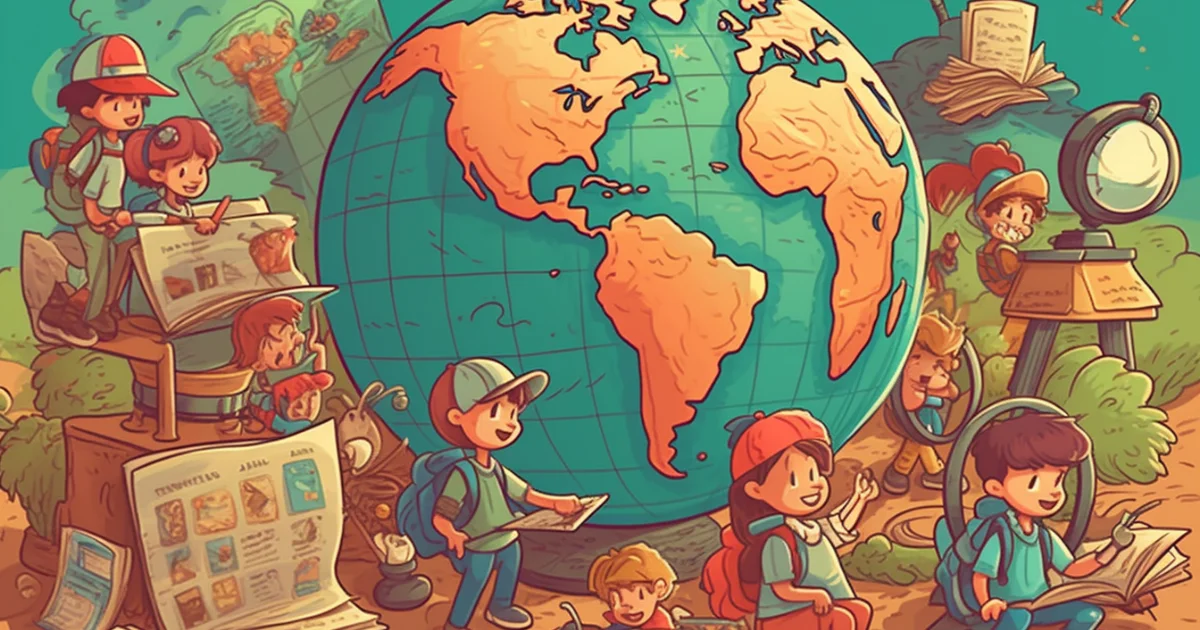This post may contain Amazon affiliate links which means, as an Amazon Associate, I may receive a small commission from purchases made through these links at no cost to you. I only recommend products I have personally used. To learn more, please see my privacy policy page.
Geography in education is a critical component in the classroom encompassing spatial awareness, cultural understanding, critical thinking, and more. It fosters global awareness and equips students with skills to address real world challenges.
Whether you’re an educator, a student, or simply curious, this article investigates the hidden potential of geography in education. As we look deeper, you’ll see how it’s not just about maps, but a transformative force shaping a brighter future. Read on…
Key Takeaways
- Geography is the exploration of people’s relationships with their environment and study of physical landscapes, human activities, and much more.
- Geography helps us comprehend regions, make informed decisions, and understand how to manage natural resources sustainably.
- Studying geography develops critical thinking skills, offers career options in different sectors, and encourages understanding for a global perspective.
Have you ever wondered about the influence geography has on our lives? From the places we call home to the diversities that shape our world, geography is a way to view our planet. It’s not just about memorizing capitals and rivers; it’s about understanding the intricacies of our global community. In education, geography is an unsung hero, quietly but profoundly shaping the way we think, learn, and engage with the world.
In this article, we explore the indispensable role of geography in education. We’ll discover how geography serves as a gateway to better understanding our world, developing vital skills, and contributing to a more informed and interconnected society. From fostering global awareness to nurturing spatial intelligence, geography education empowers students to become responsible, empathetic, and well-rounded individuals.
Join me as we look closer at the far-reaching implications of geography in education, uncovering how it influences our perceptions, drives environmental consciousness, and paves the way for diverse career opportunities. Prepare to be inspired by the richness of the field of geography and its importance to education, enhancing our capacity to make sense of the world and navigate its complexities.
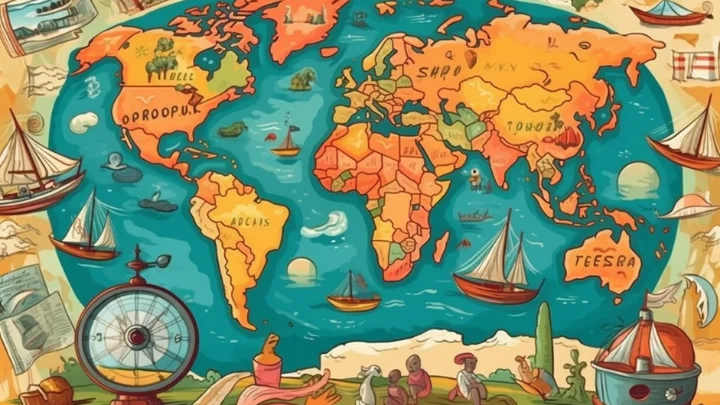
Understanding the World
Geography serves as a powerful tool for understanding our planet. It goes beyond memorizing maps and capitals; it’s about comprehending the world’s complicated web of connections. Through geography education, students embark on a journey that takes them from the highest peaks to the deepest ocean trenches, from the bustling metropolises to remote villages tucked away in far corners of the globe.
Cultural Diversity: Geography introduces students to the rich tapestry of human culture. It allows them to explore the customs, traditions, and languages of various societies. This understanding fosters tolerance and promotes a sense of unity amid diversity.
Physical Geography: Students learn about the Earth’s physical features, such as mountains, rivers, deserts, and climates. This knowledge helps them appreciate the natural wonders and challenges that our planet presents.
Human Geography: Geography also delves into the human side of the equation. It examines population trends, urbanization, migration patterns, and the impact of human activities on the environment. This insight into human behavior equips students to address complex global issues.
Global Awareness: Geography cultivates a sense of global awareness. Students gain insights into international relations, global conflicts, and geopolitical dynamics, making them informed citizens in an interconnected world.
Spatial Intelligence: Geography hones spatial intelligence, a crucial skill in various professions. From architects designing buildings to pilots navigating the skies, spatial awareness plays a pivotal role in many careers.
In essence, geography education provides students with a holistic view of the world, enabling them to appreciate its vast diversity, grapple with its challenges, and contribute meaningfully to global conversations. It’s a journey that goes beyond borders and opens minds to the endless wonders of our planet.

Developing Spatial Awareness
Geography, often synonymous with maps, landscapes, and spatial relationships, plays a pivotal role in nurturing spatial awareness, a skill that extends far beyond simply knowing how to read a map. In this section, we will consider how geography contributes to the development of spatial awareness and why this skill is indispensable in a variety of professional fields.
Spatial Awareness and Map Reading Skills
Geography, at its core, is about understanding space and how things relate to one another in the world. Through the study of geography, students become adept at interpreting maps, charts, and geographical data. This process isn’t just about recognizing geographical features; it’s about developing a deep comprehension of spatial relationships, scales, and proportions. This skill becomes a mental toolbox that individuals carry into numerous aspects of their lives.
Importance in Various Fields
Spatial awareness and map reading skills have broad applications, making them valuable assets in various professional domains.
Navigation: In the realm of navigation, whether it’s for maritime, aviation, or land-based transportation, spatial awareness is critical. Pilots, ship captains, and even rideshare drivers rely on these skills to navigate safely and efficiently.
Urban Planning: City planners and urban designers use spatial awareness to arrange streets, buildings, and infrastructure in ways that optimize functionality and aesthetics. This skill is essential in creating sustainable, livable communities.
Logistics and Supply Chain Management: In logistics and supply chain management, spatial awareness aids in efficient routing, inventory management, and warehouse organization. It’s indispensable for ensuring that goods reach their destinations timely and cost effectively.
Architecture and Engineering: Architects and engineers must visualize spatial relationships to design structures that are not only functional but also aesthetically pleasing. Spatial awareness is the foundation of architectural and engineering creativity.
Emergency Services: First responders, such as firefighters and paramedics, rely on spatial awareness to navigate quickly and effectively through challenging environments, such as burning buildings or natural disaster scenes.
Careers Requiring Strong Spatial Awareness
Strong spatial awareness is not just an asset; it’s often a prerequisite for success in certain careers. Here are a few examples:
Cartographers and GIS Analysts: Professionals in this field create maps and use geographic information systems (GIS) to analyze data. Their work directly hinges on their spatial awareness skills.
Surveyors: Surveyors measure and map the land, requiring precise spatial awareness to ensure property boundaries and land features are accurately recorded.
Astronauts: For astronauts, spatial awareness is a matter of life and death in space missions, as they operate complex equipment and navigate in microgravity environments.
Landscape Architects: These professionals design outdoor spaces, and their success depends on their ability to visualize how different elements will fit together in the landscape.
Geographic education not only equips students with the ability to read maps but also fosters a profound spatial awareness that opens doors to diverse careers and enhances problem-solving capabilities in countless contexts. It is a skillset that empowers individuals to navigate not only the physical world but also the intricate challenges of our increasingly complex society.

Environmental Awareness and Sustainability
Geography education serves as a powerful catalyst for nurturing environmental awareness and sustainability, providing students with the tools to comprehend, address, and advocate for pressing global environmental issues. In this section, we will delve into how geography plays a central role in fostering a deep appreciation of our planet’s fragile ecosystems and the urgent need for sustainable practices.
Raising Awareness about Environmental Issues
Geographic education is a gateway to the world’s environmental challenges. It equips students with a comprehensive understanding of the natural world, making them cognizant of issues such as deforestation, habitat loss, pollution, and resource depletion. This awareness extends beyond the local environment to encompass global concerns, emphasizing the interconnectivity of ecosystems across the planet.
Understanding Climate Change, Ecosystems, and Natural Disasters
Geography offers the contextual knowledge needed to grasp the complexities of climate change, ecosystems, and natural disasters.
Climate Change: Geography provides students with the scientific underpinnings of climate change. They learn about factors like greenhouse gases, weather patterns, and the impact of human activities on global temperatures. This knowledge is crucial for informed discussions and solutions related to climate change mitigation and adaptation.
Ecosystems: Geography allows students to explore the world’s diverse ecosystems, from rainforests to deserts to coral reefs. Understanding these ecosystems fosters appreciation for biodiversity and the importance of preserving delicate ecological balances.
Natural Disasters: Geography enables students to analyze and anticipate natural disasters such as hurricanes, earthquakes, and tsunamis. This knowledge is vital for disaster preparedness and response efforts.
Inspiring Action for a Sustainable Future
Geography not only informs but also inspires action. It instills a sense of responsibility toward the environment and empowers students to take concrete steps toward a sustainable future.
Conservation Efforts: Geography education often includes case studies of successful conservation projects. Learning about these initiatives can motivate students to engage in conservation efforts within their own communities.
Advocacy and Policy: Geography equips students with the knowledge needed to advocate for environmental policies and engage in environmental activism. They can become informed citizens who hold governments and corporations accountable for their environmental impact.
Sustainable Practices: Geography education emphasizes sustainable practices, such as responsible resource management, renewable energy solutions, and ecofriendly urban planning. Students can apply these principles in their personal lives and future careers.
Geographic education is a powerful tool for raising environmental awareness, fostering an understanding of critical issues, and inspiring proactive efforts to ensure a sustainable future. It equips students with the knowledge, skills, and motivation to become stewards of the planet, capable of making informed decisions and driving positive change in the face of growing environmental challenges.
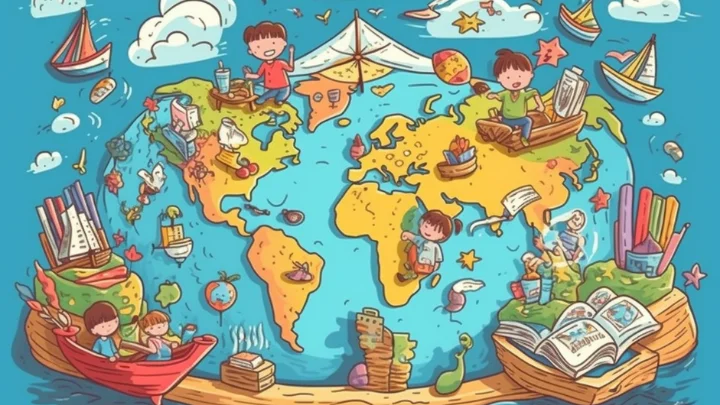
Cultural and Social Understanding
Geography serves as a bridge that connects people with the diverse tapestry of cultures and societies around the world. It plays a pivotal role in fostering a profound cultural and social understanding that is essential in today’s interconnected global landscape. In this section, we will explore how geography contributes to a deeper appreciation of cultural diversity and why this awareness is paramount for building tolerance and inclusivity.
Enhancing Understanding of Diverse Cultures and Societies
Geographic education is a window into the world’s rich mosaic of cultures and societies. It empowers students to explore the intricacies of different traditions, languages, belief systems, and ways of life. Through geography, individuals can develop a nuanced understanding of the world’s cultural diversity.
Cultural Awareness in an Interconnected World
In our increasingly interconnected world, cultural awareness has become a vital skill. Geography education equips students with the knowledge and sensitivity needed to navigate this globalized society successfully.
International Relations: Geography provides the context for understanding international relations and conflicts. It enables students to appreciate the historical, geographical, and cultural factors that shape diplomatic interactions and global affairs.
Global Economy: Understanding geography is integral to comprehending global trade and economic systems. It helps students recognize the impact of economic policies on societies around the world.
Migration and Immigration: Geography education sheds light on migration patterns and the factors driving migration. This knowledge fosters empathy and a deeper understanding of the challenges faced by immigrants and refugees.
Fostering Tolerance and Inclusivity
Geography has the power to foster tolerance and inclusivity by broadening perspectives and challenging stereotypes.
Cultural Exchange: Geography often includes lessons on cultural exchange, highlighting historical interactions between different cultures. This can lead to a more inclusive worldview and a rejection of ethnocentrism.
Diversity within Communities: Geography helps students recognize the diversity within their own communities. It encourages them to appreciate the contributions of individuals from different cultural backgrounds.
Promoting Inclusivity: Geography education can inspire individuals to actively promote inclusivity and respect for cultural differences. This can manifest in various ways, from participating in cultural festivals to advocating for multicultural policies.
Geography is not merely about maps and landscapes; it is a powerful tool for cultivating cultural and social understanding. It equips individuals with the knowledge and perspective needed to thrive in a globalized world, fostering tolerance, inclusivity, and respect for the myriad cultures and societies that enrich our shared human experience.
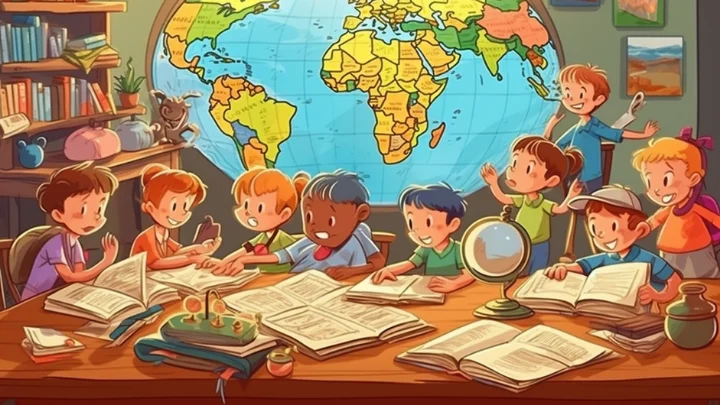
Critical Thinking and Problem-Solving
Geography is not just about memorizing places on a map; it is a dynamic field that stimulates critical thinking and problem-solving skills. In this section, we explore how geography cultivates these skills, the role of geographic information systems (GIS) and technology, and how geography contributes to effective decision-making.
Encouraging Critical Thinking and Problem-solving
Geographic education functions as a laboratory for honing critical thinking and problem-solving abilities. It challenges students to think critically about spatial relationships, patterns, and complex global issues.
Spatial Analysis: Geography requires students to analyze and interpret spatial data. They must decipher geographic patterns and understand the implications of those patterns on various phenomena, such as population distribution or the spread of diseases.
Complex Systems: Geography often involves studying complex systems, like ecosystems or urban environments. Students learn to analyze how different components of these systems interact and how changes in one aspect can affect the entire system.
Causal Relationships: Geography encourages students to identify causal relationships between geographic factors and real-world outcomes. For example, they might investigate how deforestation impacts local climate or how urban planning affects traffic congestion.
The Role of Geographic Information Systems (GIS) and Technology
Geographic information systems (GIS) and technology have revolutionized geography, providing powerful tools for problem-solving and decision-making.
GIS Mapping: GIS allows students and professionals to create interactive maps that incorporate various layers of data. These maps can reveal patterns, trends, and relationships that might not be apparent in traditional maps.
Spatial Modeling: GIS enables the creation of spatial models that simulate real-world scenarios. These models are invaluable for predicting outcomes and testing the impact of different variables.
Remote Sensing: Technology such as satellite imagery and aerial photography provides a wealth of spatial data. This information is used for monitoring environmental changes, tracking land use, and managing resources.
Geography's Contribution to Decision-making Processes
Geography plays a pivotal role in informing and guiding decision-making processes in various fields.
Urban Planning: Geographic analysis informs urban planners about the optimal placement of infrastructure, transportation networks, and public services. This data ensures cities are well-designed and functional.
Disaster Management: Geography aids in disaster preparedness and response. GIS technology helps emergency services and government agencies assess the potential impact of natural disasters and plan for evacuations and relief efforts.
Environmental Policy: Policymakers use geographic data to formulate and evaluate environmental policies. Geography helps in monitoring pollution, conserving natural resources, and mitigating climate change.
Business Strategies: Corporations utilize geographic analysis to make informed decisions about market expansion, supply chain optimization, and site selection for new facilities.
Geography serves as a crucible for critical thinking and problem-solving skills. It equips individuals with the tools and technologies needed to analyze complex spatial data, model real-world scenarios, and contribute to informed decision-making processes across diverse fields, ultimately shaping a more effective and sustainable future.
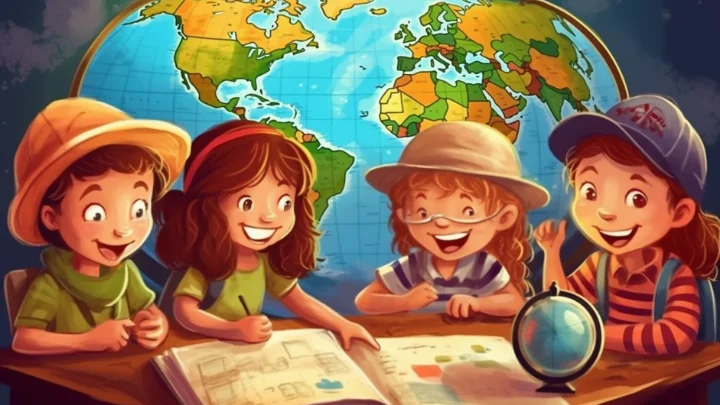
Career Opportunities
A strong background in geography opens doors to a diverse range of exciting and impactful career opportunities. From shaping urban landscapes to addressing pressing environmental issues, individuals with a solid foundation in geography find themselves well-equipped for a variety of roles. In this section, we will highlight some of the prominent career fields where geography plays a central role and explore the potential for job growth in these domains.
Urban Planning: Geography graduates often find fulfilling careers in urban planning. They contribute to the design and development of cities, ensuring that urban spaces are functional, sustainable, and livable. Urban planners work on zoning regulations, transportation infrastructure, affordable housing initiatives, and urban revitalization projects. The need for urban planners is expected to grow as cities worldwide grapple with population growth and the challenges of urbanization. Sustainable urban development and infrastructure planning will continue to be priorities, driving job opportunities in this field.
Environmental Management: Geography is at the forefront of environmental management careers. Environmental consultants, specialists, and analysts work to assess and mitigate the impact of human activities on the environment. They develop strategies for conservation, pollution control, and sustainable resource management. With increasing concerns about climate change and environmental degradation, demand for professionals in environmental management is on the rise. Government regulations and corporate sustainability initiatives also drive job growth in this field.
International Relations and Diplomacy: Geography provides a crucial foundation for understanding international relations. Graduates with a geography background can pursue careers in diplomacy, international development, and foreign affairs. They work on issues such as global security, humanitarian aid, and cross border cooperation. International relations remain a vital field, and geography-educated professionals are in demand for their expertise in spatial analysis, geopolitics, and understanding the geographical dimensions of international conflicts and cooperation.
Geospatial Technology and Geographic Information Systems (GIS): The use of geospatial technology and GIS is pervasive in numerous industries. Geography graduates often work as GIS analysts, cartographers, or geospatial scientists. They collect, analyze, and visualize geographic data to inform decision-making. The demand for geospatial professionals continues to soar. Industries such as agriculture, healthcare, transportation, and emergency management increasingly rely on spatial data for planning and analysis, fueling job growth in this specialized field.
Transportation and Logistics: Geography plays a pivotal role in transportation and logistics careers. Professionals in this field work on optimizing supply chains, managing transportation networks, and improving the efficiency of goods and people movement. As global trade and transportation networks expand, career opportunities in transportation management and logistics are expected to grow. The rise of ecommerce and the need for efficient distribution channels contribute to this growth.
A strong background in geography offers a wide array of career paths, from shaping sustainable cities to safeguarding the environment and contributing to international diplomacy. These fields not only provide fulfilling and intellectually stimulating work but also offer significant job growth potential as society faces increasingly complex spatial challenges in the 21st century. As such, a geography education can be a wise investment in one’s future career prospects.
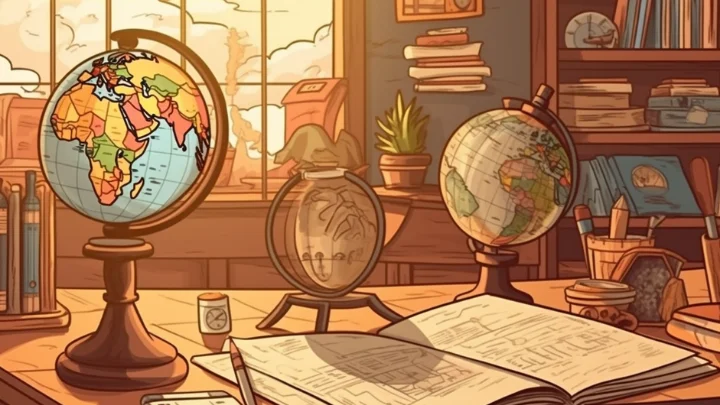
Frequently Asked Questions
1. Why is geography considered important in education?
Geography is considered important in education because it helps students gain a comprehensive understanding of the world, fosters critical thinking skills, and raises awareness about environmental and cultural issues. It also opens up various career opportunities.
2. What are the career prospects for individuals with a degree in geography?
Individuals with a degree in geography can pursue careers in fields such as urban planning, environmental management, international relations, geospatial technology, transportation, and more. These fields offer a wide range of job opportunities and growth potential.
3. How does geography contribute to environmental awareness and sustainability?
Geography contributes to environmental awareness and sustainability by educating students about environmental issues, climate change, ecosystems, and natural disasters. It empowers individuals to make informed decisions and take action to protect the environment.
4. Can geographic education promote cultural understanding and inclusivity?
Yes, geographic education promotes cultural understanding and inclusivity by exposing students to diverse cultures and societies. It encourages empathy, tolerance, and an appreciation for cultural diversity, which are essential in today’s interconnected world.
5. What role does geography play in critical thinking and problem-solving?
Geography encourages critical thinking and problem-solving by requiring students to analyze spatial data, identify causal relationships, and address complex global issues. It equips individuals with skills to tackle multifaceted challenges in various domains.
6. How can technology like GIS benefit students studying geography?
Geographic Information Systems (GIS) technology benefits geography students by enabling them to collect, analyze, and visualize spatial data. It enhances their ability to understand and solve real-world problems, making geography education more practical and relevant.
7. What is the future of geography in education and its impact on society?
The future of geography in education is promising, with an increasing emphasis on global awareness, sustainability, and technology integration. Its impact on society is expected to result in a more informed, responsible, and globally aware citizenry.
8. Are there any specific scholarships or grants available for students pursuing geography degrees?
Yes, many scholarships and grants are available for students pursuing geography degrees. This financial aid can help offset the cost of education and support aspiring geographers in their academic pursuits.
9. How can individuals with a background in geography contribute to solving global challenges like climate change and urbanization?
Individuals with a background in geography can contribute to solving global challenges by working in fields related to urban planning, environmental management, and sustainable development. Their expertise is crucial in finding solutions to these pressing issues.
10. What can educators and policymakers do to promote the importance of geography in education?
Educators and policymakers can promote the importance of geography in education by integrating geography into curricula, supporting geography related initiatives, and advocating for the inclusion of geography in standardized testing. They can also collaborate with organizations and institutions to raise awareness about the value of geographic education.
Wrap Up...
During this exploration, we have investigated the profound significance of geography in education and its far-reaching impact on individuals, communities, and our globalized connections. As we wrap up our journey, let’s recap the key takeaways and emphasize the enduring importance of geography.
Understanding the World: Geography is more than just maps; it’s a gateway to comprehending the complexity and diversity of our world. It introduces us to cultures, ecosystems, and landscapes that define human experience and our environment.
Critical Thinking and Problem-solving: Geography cultivates critical thinking skills by encouraging us to analyze spatial patterns, understand causal relationships, and grapple with complex global issues. It equips us with the tools needed to tackle multifaceted challenges.
Environmental Awareness and Sustainability: Geography fosters an appreciation for the environment and the urgent need for sustainable practices. It empowers us to address climate change, preserve biodiversity, and advocate for responsible resource management.
Cultural and Social Understanding: Through geography, we gain insight into diverse cultures and societies, promoting empathy and inclusivity. Geography education prepares us for an interconnected world where cultural awareness is paramount.
Career Opportunities: A strong background in geography opens doors to diverse career fields, from urban planning to environmental management and geospatial technology. These professions not only offer fulfilling work but also contribute to solving real-world problems.
Geography is the compass that guides our journey through education and life. It instills in us a profound appreciation for the world’s wonders, encourages us to think critically, and equips us with the knowledge and skills to address complex challenges. Geography transcends borders, fostering an informed, responsible, and globally aware society.
As we continue to navigate the complexities of our ever-changing world, let’s not underestimate the important role of geography in shaping our personal and professional lives. Let’s embrace geography’s capacity to inspire positive change, and may we carry its lessons forward as we work collectively to build a more informed, empathetic, and sustainable future for all.

